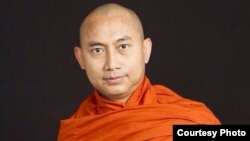Every day, Sar Sun Theary wakes at about 5 am. After her morning prayers, she walks slowly around her home, pausing to take in the details around her for about an hour twice a day.
Theary has been practicing meditation since 2010 and says it has helped her deal with insomnia and recovery from illness.
“It makes us sleep peacefully. Before I could not sleep well. I was sick, and I could not sleep well. I needed to take medicines. Then I stopped taking medicine,” she said from her home in Cary, North Carolina.
This month, Theary and her family will volunteer with Ea-Lim Bophary, her meditation coach, who is organizing a meditation retreat in Siem Reap, from April 23 to May 2.
“I pity the Cambodian people. [I have] so much compassion, [and] so much sympathy for people in the country where I was born,” Bophary said. “So I want to share this knowledge with Cambodian people.”
Bophary is a dentist by trade in Farifax, Virginia, and has been practicing meditation now for more than nine years. “I’m a dentist. It’s stressful. It requires a lot of energy and thought. So when I meditate, it makes me energetic until the evening,” she says.
Bophary has invited two senior Myanmar monks to guide the retreat. Participants will be expected to remain in the pagoda for the duration.
After three of her relatives died suddenly in 2008, Bophary began to question her purpose in life, taking to meditation to seek answers.
Meditation, she says, “helps a lot. It helps me feel less fearful, and less stressed.”
Another Burmese monk who will be going to join the retreat with Bophary, Sayadaw U Kheminda of the Mingalarama monastery in Maryland, says meditation’s benefits include “purifying the physical, and mental refinement, overcoming sorrow, overcoming worry, overcoming lamentation, being free from mental suffering, attaining enlightenment and nirvana.”
Some studies have suggested that meditation has concrete physical benefits, however, science still questions exactly how the practice affects the brain.
Sara Whitney Lazar, a neuroscientist at Massachusetts General Hospital and assistant professor of Psychology at Harvard University, told VOA Khmer that evidence suggests it causes “changes in the brain stem.”
“So, it could be these changes in brain structure that contribute to the changes in mood that people report,” she said.
So far, Bophary says, some 600 Cambodians have signed up for her meditation retreat.









